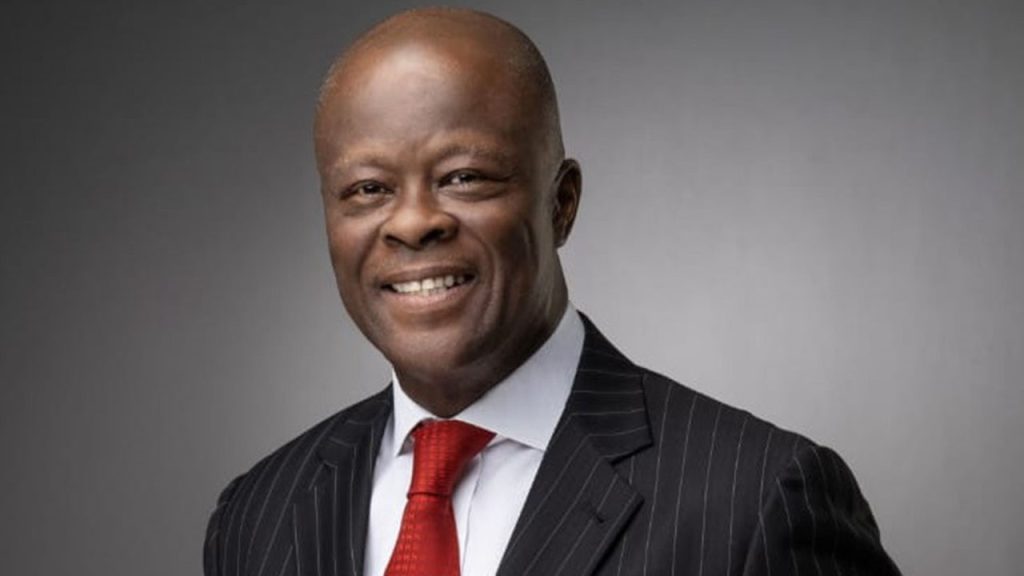The Federation Account Allocation Committee divided N1.152 trillion among the three levels of government for February 2024 from a total of N2,326.14 trillion.
This information was detailed in a statement signed by the Director of Press and Public Relations, Mohammed Manga, after the committee's February 2024 meeting presided over by the Minister of Finance and Coordinating Minister of the Economy, Wale Edun, on Thursday.
FAAC is responsible for reviewing and approving the distribution of funds to states and the Federal Government.
Each month, the committee allocates revenue to all 36 states and 774 local governments in Nigeria.
This funding is anticipated to drive development and aid governments at various levels in carrying out their duties.
Out of the mentioned amount including Gross Statutory Revenue, Value Added Tax Electronic Money Transfer Levy and Exchange Difference, the Federal Government received N352.40 billion, the states received N366.95 billion, the local government areas received N267.15 billion, while the oil-producing states received N166.24 billion as derivation (13 percent of mineral revenue).
The statement also stated that N66.45 billion was designated for the cost of collection, N856.93 billion was earmarked for transfer intervention and refunds, and N250 billion was saved.
The document displayed the total revenue distribution for the month was derived from Statutory Revenue of N101.34 billion VAT of N428.80 billion, N15.15 billion from EMTL, and N607.44 billion from Exchange Difference, bringing the total amount available for the month to N1,152.75 trillion.
The communique released by FAAC at the conclusion of the meeting revealed that the Gross Revenue available from VAT for February 2024 was N460.48 billion, an increase from the N420.73 billion distributed in the previous month, leading to a N39.75 billion rise.
Out of this amount, N18.42 billion was allocated for the cost of collection and N13.26 billion was set aside for transfers, intervention, and refunds.
The remaining N428.80 billion was divided among the three tiers of government, with the Federal Government receiving N64.32 billion, the states receiving N214.40 billion, and local government councils receiving N150.08 billion.
The Gross Statutory Revenue of N1,192.42 billion received in the month was higher than the N1,151.80 billion received in the previous month of January 2024 by N40.62 billion. Out of this sum, N47.40 billion was allocated for the cost of collection, a total of N843.67 billion was set aside for Transfers, Intervention, and Refunds, and a total of N200 billion was saved.
From the remaining balance of N101.34 billion, the Federal Government received N7.35 billion, States received N3.72 billion, while N87.39 billion was allocated to LGCs as Derivation (13 percent Mineral Revenue).
Additionally, the amount of N15.78 billion from EMTL was distributed, with the Federal Government receiving N2.27 billion, States getting N7.57 billion, LGCs receiving N5.30 billion, while N0.63 billion was allocated for Cost of Collection.
The statement also revealed that from the N657.44 billion from Exchange Difference, the Federal Government received N278.46 billion, States got N141.24 billion, while N108.89 billion was allocated to Local Government Councils, N78.85 billion was given for Derivation (13 percent of Mineral Revenue), and a total of N50 billion was saved.
It also said that taxes like Petroleum Profit Tax, Value Added Tax, Import Duty, Excise Duty, and Customs External Tariff went up a lot, while Oil and Gas Royalties went up slightly. Electronic Money Transfer Levy and Companies Income Tax decreased significantly.
In his opening comments at the meeting, Edu mentioned, “In terms of money exchange, there is a plan to increase forex trading.”
He told the group that the administration led by President Bola Tinubu has started a program to give direct payments to about 15 to 17 million of the poorest and most vulnerable Nigerians to help achieve rapid and ongoing economic growth in the country. They made sure to prevent fraud using Biometric Registration and Digital Registering.
He said, “We are making more money, and we appreciate the agencies that bring in money for their hard work.”



